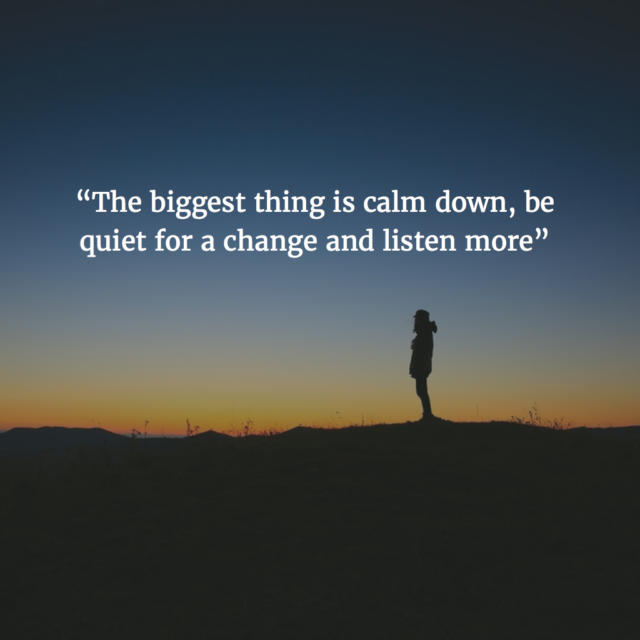An extrovert’s guide to introverts
An interview with Professor Karl Moore
It never occurred to me that I was an extrovert. I was shy well into my teens, feeling clumsy and uncomfortable rather often when I tried to engage with new faces. It was only through continuous conscious efforts guided by a desire to follow my fears that I grew comfortable in social settings that I could see them as a source of energy, inspiration, and joy.
I now love to engage with complete strangers, to give speeches, and find it natural to share my emotions and thoughts, as I do for this Magazine, without dread of negative judgment. I inhaled this attitude of openness up to a point where I reached oblivion towards introverts: For most of my life as a not-shy-anymore extrovert, I used to believe that introverts are just shy extroverts like my previous self, that they just hadn’t mustered the courage to change. Whenever I sensed that an introvert thought I was overdoing it, I only mistook their discomfort with jealousy or weakness. Years ago, a manager at an NGO even warned me of the “whirlwind of energy” that I brought to a place.
It took me months to grasp what she meant, and it wasn’t until I met my dear Aaron Maniam, probably the most outgoing introvert I know, that I began to develop awareness. He pointed out to me that “Introversion has nothing to do with shyness, it’s about where you draw your energy from—others or yourself. Being in company drains introverts’ energy, we need solitude to recharge. That’s different for you extroverts.” But my newly won awareness did not immediately translate into understanding. Rather, it was merely the beginning of my journey to fathom of this stranger human nature.
An obvious person to ask for help on understanding how to deal with introverts is fellow extrovert Professor Karl Moore of McGill University, whose work on the treatment of introverts in the corporate environment has gained much attention, including in this popular Economist article. He combines real-world experience with academic thinking, which has led him to publish 28 refereed journal articles and ten books, leading to over 1,950 Google Scholar cites. Currently, he is working on his next book “Quiet Leaders: Introverts in the Executive Suite.” I am delighted that he agreed to share a few thoughts with us on how extroverts can be more mindful of the differences between them and the introverts in their lives and how to make our interactions more enjoyable.
The Interview
Sven: Thank you so much for your time, Karl. Quiet author Susan Cain highlights that our societies favour extrovert traits: Group work is considered the best way to foster learning and creativity (although it might be the worst for introverts) and extroversion is often seen as a good leadership quality. These biases, she argues are founded on the historical notion that a man of action is more esteemed than a man of contemplation. According to Cain, this cultural inheritance leads to a systematic discrimination of introverts in workplaces. What is your take on this?
Karl: I have to very much agree with Susan. I have been down to visit her a couple of times now at Quiet House, where the Quiet Leadership Institute is headquartered in the New York City area. But spending time with her discussing her ideas has encouraged me to embark on a major research project where I have interviewed +200 C-Suite executive about the strengths and considerable contributions of more introverted leaders. I spent 11 years with IBM and Hitachi before my academic career. I recall very clearly how in the 80s and 90s we were taught and was modeled (largely by our senior leaders) a more extroverted approach to leadership. Thankfully today, we are taking a more nuanced view of leadership.
Sven: Where does this change come from and do you think some industries or companies have adopted this ‘nuanced view’ more than others?
Karl: A bit of the change is coming from the 2.5 million sales of Susan’s book Quiet, and others books and articles that have been part of a growth of attention that the world has been bringing to introverts as employees, managers, and leaders. It is simply something that has entered to a fair degree into the conversation about leadership and diversity within our organizations.
Sven: Maybe, to take a step back: My friend Charlotte is challenging the dichotomy between introverts and extroverts. She thinks that it is too simplistic as a concept and argues that we don’t have to necessarily be one or the other but can be both at different moments. Do you think that the introvert/extrovert metaphor is a useful one or is it a misleading generalisation?
Karl: I would agree with Charlotte that we are not always the one or other. Firstly, there is a third category that is newish to many people, the Ambivert, which is between the two. More fundamentally, the executives I have interviewed for my research suggest quite strongly that regardless of which you are starting out as, as you get more senior you have to learn to act like the other to be an effective leader. Claude Mongeau, who just stepped down as the CEO of CN, a large North American railroad, tells how when he leaves his floor at CN’s headquarters in Montreal he has to put on a “game face” and act like an extrovert in order to live up to people’s expectations of how a CEO must be: friendly, outgoing to employees and customers and give a good solid speech when required. I have argued that as an extrovert, when I leave my office, there are times when I should act like an introvert in order to be a more effective leader, for example, listen more than I would perhaps be naturally inclined to do as the full-blown extrovert that I am.
Sven: Some introverts complain that they’re often mistaken for extroverts. Others say that they spend many years trying to adapt to extrovert-shaped school or work cultures until they realised that they could be more creative and feel better in an environment that suits introverts’ need for quiet, reflection, and solitude?
Karl: One answer might be that you are an ambivert, who often has the ability to act like an introvert or an extrovert depending on the circumstances without too much trouble. One the other hand, you may be just like my friend Claude Mongeau from CN, you simply have learned that as you have grown in experience as a leader, you have acquired the ability to act like an extrovert when it is required. However, what introverted leaders tell me is that they have learned that they can act like an extrovert but as introverts they need quiet, reflection and solitude more than the average extrovert and have to make room for that recharging on a regular basis if they are going to be fully effective leaders.
Sven: That sounds like the concept of intro- and extroversion is not a dichotomy but rather you can find yourself anywhere on a continuum between both extremes?
Karl: Yes, exactly. I am more on the far end of the extrovert scale but many people I know are extroverts but closer to the Ambivert centre, it is definitely a continuum. Still at the heart of being an introvert is the need (to sooner than the extrovert) to take a break from stimulation and recharge and reflect on what they have just been through. So I need to act like an introvert at times and introverts who are leaders need to act like extroverts at times but we must be somewhat true to our basic nature as an introvert, ambivert or extrovert.
Sven: When I looked for articles about workplace inclusion of introverts, I came across good advice that speaks either to managers or to introverts, but are you aware of places where both extroverts and introverts of the same level in the hierarchy are taught how to interact with one another?
Karl: Recently I was in New York City doing a course for senior partners at KPMG with the Quiet Leadership Institute, Susan Cain’s new organization, this part of a major effort to get these ideas about Introverted and increasingly, Extroverted Leaders, into the ongoing development of managers and their thinking. I have heard that other executive teachers are thinking about making this part of their management development programs as well.
Sven: But isn’t that preaching to the converted? I’ve never received any training or even noticed this issue being raised in work environments!
Karl: The number of programs that discuss this are growing but clearly not enough yet!
Sven: Shouldn’t we find a way to bring this into people’s minds beyond management? Isn’t there, for example, a role for schools and universities to help people gain more clarity about this issue? Or what other levers do you see?
Karl: Absolutely, Susan’s latest book, Quiet Power: The Secret Strengths of Introverted Kids, came out earlier this year. With co-authors Gregory Mone and Erica Moroz, Susan looks at how schools and parents can work more effectively with introverted kids. Mainly aimed at elementary and high schools, many of the ideas can apply to university education as well. I have used the ideas in my classroom, for example, giving more time for people to reflect in small groups, which appeals to introverts and giving them things to read ahead of time so they feel more comfortable to comment in the class because they have done their homework and feel prepared and ready to make a real contribution.
Sven: I’ve witnessed group discussions in which extroverts tried to be overly inclusive towards everyone, which made some group members feel uncomfortable and caused them to withdraw. From then on, the conversation was dominated by the extrovert minority in the group and the rest’s ideas remained unheard. How should an extrovert balance leaving space for introverts in group conversations to make sure their ideas are heard without creating an implicit feeling of being pressured to speak when they desire to stay quiet?
Karl: A very helpful approach I found is to give introverts time to think, I would suggest send them something to read ahead of time and let them know you will be talking about a topic ahead of time so they get the time to do what they want to do, in fact, need to do, to reflect on something before they speak! In meetings I have learned to give introverts time and not to rush them to comment. After a meeting has gone on for a bit I will often look at my introverted colleagues and simply raise an eyebrow in a questioning way to silently ask them if they are ready to comment. If they are not, I have learned to leave them be until they are ready to comment, when are they ready, they almost invariably have an excellent, well thought out contribution to make.
Sven: In one of your pieces you highlight how it can be frustrating for extroverts to not get the energy feedback they need from extroverts, that it might make us feel rejected. What is your advice for introverts who are talking to extroverts?
Karl: “Extroverts like myself often think by talking, often to our bosses or employees. What I want from them is simply to listen but not just to listen but to listen with some degree of enthusiasm, otherwise, I will feel a lack of emotional response that I need! Showing some degree of excitement doesn’t mean that you necessarily agree but it is what I need. What an introvert should do is respond to some degree to my natural enthusiasm but then ask me to go give some more thought, do some research and then send you an email outlining my ideas. This will, of course, invariably improve my ideas, which is what you have in mind. I am not asking my introverted colleagues to do any unnatural acts but lean into what I need a bit.
Sven: And what advice do you have for extroverts who are talking to introverts?
Karl: As extroverts the starting place is to understand how they approach things and give them room to be themselves. If I can I let them know ahead of time what we are going to be talking about that is quite helpful so they can prepare their thinking, do analysis they feel is appropriate and so come to the conversation with their ideas thought through, which they like and makes for a more insightful and interesting conversation. Introverts often appreciate smaller groups for conversation, so by making it a one-on-one or maybe keeping it down to three people is another way of helping them to be at ease.
Sven: I have an Indian friend, Atoho, who currently lives in Berlin. Considering himself a ‘measured extrovert’ he was often surprised how Germans appeared introverted at first but with a “slight prick and some sense of space,” they would quickly become loquacious. In your opinion, has he found the master key to engaging with introverts or do you think there’s an additional challenge to distinguish introverts from extroverts when you’re in a different culture?
Karl: There is undoubtedly a cultural overlay to how extroverts and introverts act in any given society. I grew up in Canada but lived 6 years in the U.S. and five in the U.K. and now back in Canada. It takes time to realize and understand the nuances of how personality plays out through the prism of a national culture or even a functional or professional culture. Experience and the help of a cultural mentor can be very helpful.
Sven: What do you think extroverts can learn from introverts?
Karl: The biggest thing is calm down, be quiet for a change and listen more.
Sven: Thank you very much for sharing your thoughts, Karl. Maybe one last question to end this interview. Looking at the knowledge you have now as an academic in the field of business, what is it you wish you knew when you started working in real life business as a young professional?
Karl: Realize it is going to be a long career with a great deal of change, enjoy the ride and the changes.



